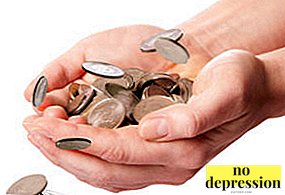Welcome to the third step of the personal development plan. In this step, we will talk about willpower, I call it "the muscle of self-development." As usual, we will devote some time to the theory, then, I will formulate the main conclusions from the theoretical material for its better assimilation and, at the end, I will give a list of exercises that will help you to consolidate the material you have learned in practice.

Going through this step will give you a feeling of strength within you that can pacify laziness, pain, fear, and insecurity. The exercises offered by me will help you to wake up this power if it is dormant in you. Of course, it will not be like the sudden awakening of a mighty beast, sweeping away everything in its path, rather, it will remind a child awakening from a long sleep, who is lazily rubbing his eyes and stretching himself. But you need to start small. After some time, the child always gains strength with the right upbringing.
Content
Remember, in spite of the fact that theory is very important, without it, without some kind of understanding, it is impossible to start doing anything, but one understanding is not enough - practice is needed. You may be well aware that you are lazy, dependent on weaknesses, but what is the use of this knowledge if you are not able to correct this state of affairs? Many people are well aware of their shortcomings and weaknesses, but instead of changing themselves, working on themselves, they are trying to change what surrounds them so that their shortcomings do not receive development.
For example, it happens that if someone understands that he is quick-tempered, he tries to avoid any situations that potentially contain the possibility of conflict. Or a lover of drinks, who plans to quit, deny himself a get-together with friends, only because he avoids drinking companies, as he is afraid not to cope with the temptation to drink in such a situation.
But the essence of my self-development lessons is quite different. I insist that a person should work on himself, cope with his shortcomings in those cases when it is the most difficult to give. In accordance with my self-improvement system, a quick-tempered person should not ignore conflict situations, if this is not possible, he should face them face-to-face, try to control his anger and not lose his temper. A drinker is not obliged to miss the opportunity to go to a friend's birthday party, let him get into a drinking and walking company, but his task is to cope with his desire, endure and not drink, and learn to have fun without alcohol.
It is the same as learning to drive a car over the ice: it is difficult, but if you learn, then there will be no problems with driving on the regular road. Not everyone can drink or fall for people in the absence of an “excuse”. But the real work begins when you deny yourself your vices at the moments of greatest temptation! Agree that if you visited a couple of birthdays and at the same time did not consume a single drop of alcohol, then in the ordinary everyday life you will now be much easier to refuse! (After all, maybe its reason is not dependent on alcohol, but in the inability to communicate with people soberly, and this can be corrected only by constant practice, nothing else). Remember, the more resistance you need to overcome, the greater the development of your will!
Actually, the development of the will is a very important aspect of my program. Cultivation can not do without willpower, just as strength sports can not do without developed muscles.
Theory
How to develop willpower and self-discipline
and another little article in which there are some more important points
Motivation Myths
Conclusions from the theory
- Will is the ability to act in spite of the current state of well-being and mood, the ability to direct efforts towards the achievement of a useful result.
- Will power is one of the most important personal qualities, it helps to achieve your goals, achieve success, endure difficulties and much more.
- Willpower allows you to do what you do NOT want to do, but you have to do it.
- Will realizes the requirements of the mind, contrary to the blind and short-sighted desires of instincts.
- Willpower allows you to know the measure in your desires, raising instincts.
- The will is trained in the process of your vital activity, life daily provides a lot of reasons for training willpower and the stronger it is, the easier it is for you to overcome these small life tests.
- You develop willpower when you do what you don’t want to do.
- The habit of always following the wishes of desires is an opponent of willpower, and the more you move this habit, the more it grows
- Do not overdo it with the training of willpower, use resources rationally, do not force yourself to do what you can do more effectively tomorrow
- Do not blame yourself for the lack of instant results, the main thing is that you are trying (you are trying, right?)
- Stimulus Nothing - Motivation is Everything
- No need to go after incentives
- The stimulus cannot be with you all the time: there will always be periods when something has to be done through a huge “I don't want”
- True autonomy and strength manifest where there is no incentive.
Practice
In the practical part of the article about willpower, there is a section called “daily willpower training.” For a certain period of time, you will score yourself, based on the amount of points earned. The goal is to score maximum points every day. At the same time, this bar will increase. I will give an example.
You can event flow every day, divided conditionally into 10 parts. Each part is a “willpower event”, that is, a situation whose result determines your willpower. For example, you either got up on an alarm clock or did not get up, it all depends on your will. Here we assign a certain number of points to each event depending on its “complexity”. The sum of points should be equal to some fixed value, for example - 100. How would I consider it for myself:
- Wake up on an alarm clock - 15 points
- Did exercises - 15 points
- He meditated - 10 points (I try to meditate every day, no matter what happens)
- Released on time - 5 points
- I did everything at work - 25 points (not only working affairs, but everything I planned)
- Came home - did a run - 15 points
- Meditated - 10 points
- Went to bed on time - 5 points
(If you are not doing it yet, willpower training is a good reason to start doing it)
Total: 100 points
This is just an example; you can create your own “willpower event schedule” as you please. It is even desirable that there be more than 10 events. But the general recommendations are: it is better that the event be repeated day after day, or at least on weekdays. This will make it easier for you to compare the results of different days, since everything will be reduced to a “common denominator”. If events are different from day to day, then replace them with others, but keep the sum of points equivalent to a fixed value (100 every day). You can make the schedule separately for weekdays and weekends, as the to-do list may vary.
An event of willpower does not have to be a deed done, it can also be the absence of any action. (I did not eat at night, did not drink beer, did not sit on the Internet, etc.) Such an action or lack thereof, firstly, should bear some benefit for you, for your health, for your loved ones. Think about what you would like to achieve, maybe lose weight or learn something, so adapt the exercises to your goals, so you will not only develop willpower, but also get a useful result. This step is an excellent opportunity to move towards what you have long wanted.
Secondly, volitional action is obliged to counteract some resistance in the form of laziness, unwillingness. Where there is no resistance, there is no development of willpower. Therefore, it should be clear that for some people a certain action (or lack of it) will be a volitional event, but for others it will not. Someone, for example, easily goes without alcohol for months, but for someone a week without a drink is a feat.
You should not overstrain, demand too much from yourself, performing exercises on willpower. It is necessary to enter this mode smoothly, gradually increasing the complexity. But this does not mean that you need to set too easy tasks for yourself, such as eating two chocolates instead of the usual three before going to bed. Think of real goals and try to find a middle ground between laziness and fanaticism.
Third, a volitional event is possible only when you have the tempting opportunity to ignore it. For example, going to work is not an event of willpower, because you don’t have much choice: if you don’t attend work, you will be fired or deprived of money, or maybe reprimanded (unless you work on extremely loyal conditions). But to go for a run in the cold is already an event, because you have a choice either to go or not to go, and no one will punish you if you decide to stay at home.
Under pressure from the possibility of punishment for inaction or under the relentless gaze of the warden (supervisor, personal trainer, strict teacher), everyone can work and act. But the manifestation of true willpower and independence is possible only in the conditions of an alternative, when there is a tempting opportunity to show passivity and weakness and you will not have anything for it.
Fourth, the formation of a schedule of will-power events implies planning the day ahead. You will need to prepare in advance some program of what you have to do today and what points you will get for it: “Today at work I will do part of some big work in advance so as not to save for later,” for example, I will write 2000 words of an article in a blog (;-), in the evening I will go in for sports. In order not to tinker, give points, only for a fully completed action, for example, I wrote 2000 words - got 25 points, got a post for 1999 words - my score is 0 points (provided that no external circumstances could prevent me from fulfilling the plan in 2000 words).
We repeat the main signs of a volitional event:
- It is desirable that it be repeated.
- It can be both an action and its absence.
- This action must resist resistance.
- Perhaps only in terms of alternatives.
- Must be scheduled in advance.
Exercise time: 15 days.
Passing score by days: 1-3 days (50 points), 4-8 days (70 points), 9-15 days (90 points)
In brackets is the minimum score, which you should try to achieve on the specified days. If you do not have 15 days and you feel that you need more time to raise the bar for the passing score, then increase this period. The exercise time that I set is a recommendation, and not obligatory.
Important!!!
Remember, each next step of the plan of self-development, as it includes the previous steps. You should not give up meditation, after you have passed the first step, also continue to follow your emotions, according to the second step, just now do it less scrupulously, you can not write on paper, because you have already read the general principle. But now you can set yourself points of willpower for morning and evening meditation, in an amount proportional to how difficult it is for you to force yourself to meditate.
How to finish this? Proceed to the next step.



